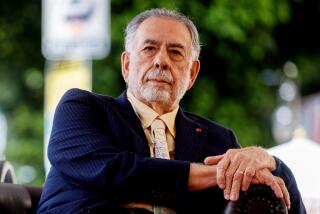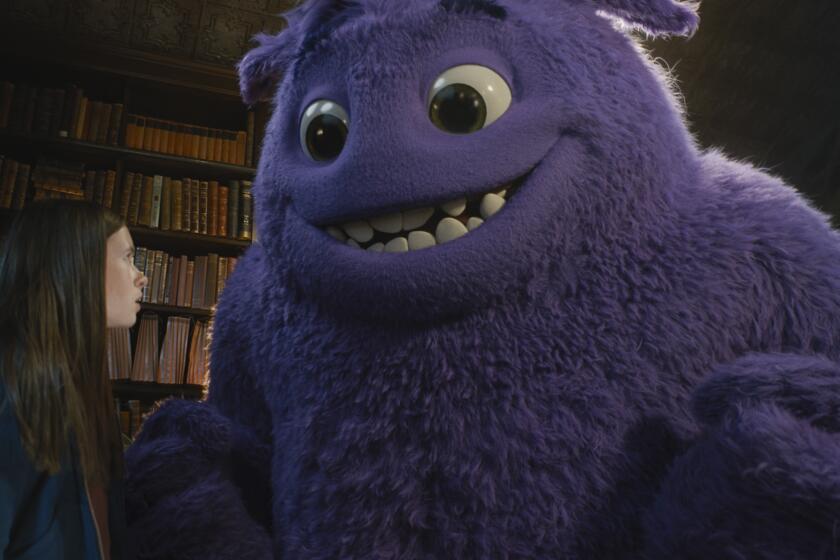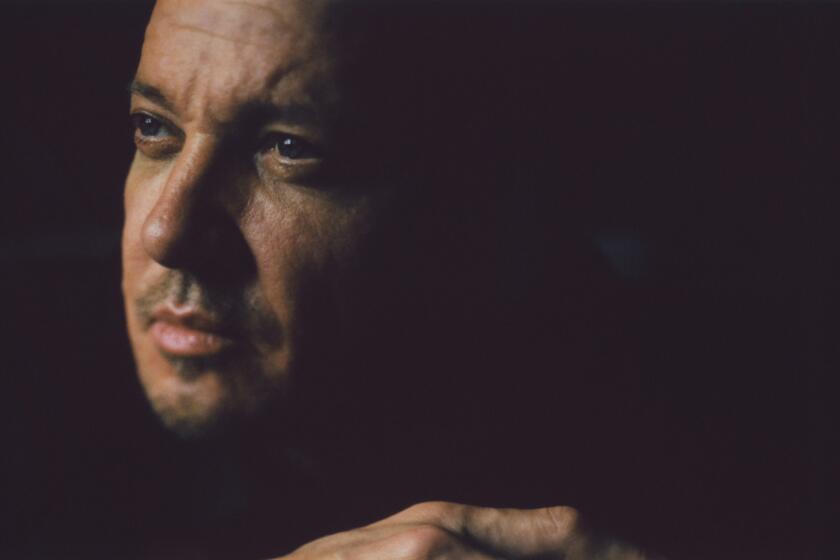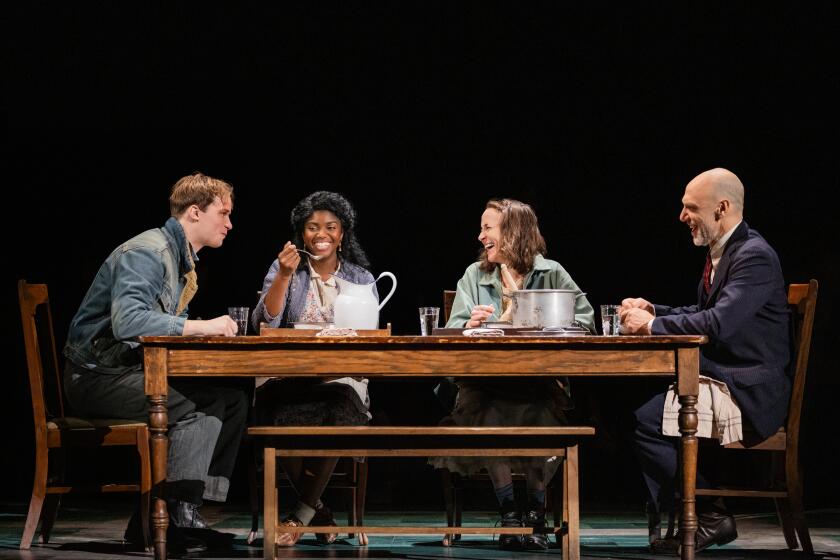Is bad news drowning out rap’s positive beat?
With the nation’s moviegoers and critics embracing Eminem’s performance in “8 Mile,” this should be a moment of supreme triumph for rap music.
Thanks to the eloquent, liberating elements in director Curtis Hanson and writer Scott Silver’s tale of a young man’s struggle to achieve his rap dreams, millions of skeptical adults are beginning to understand what young rap fans have been declaring for almost two decades -- that the ghetto-spawned sound is a vital American art form.
But the celebration of “8 Mile” has been tempered by tragic reminders of rap’s violent roots, and by continuing links to that violence.
Eight days before “8 Mile” opened in 2,470 theaters on Nov. 8, Jam Master Jay, the influential DJ in the seminal rap group Run-DMC, was gunned down in his Queens, N.Y., recording studio. The search for the killer and the motive continues.
On Thursday, Los Angeles authorities arrested three associates of Marion “Suge” Knight, the co-founder of the notorious Death Row Records who now runs Tha Row Records, on suspicion of conspiring to murder a gang rival.
These were two very separate incidents.
Like Run-DMC’s music, Jay (real name Jason Mizell) was a positive social force, someone who stressed the importance of education and generously helped neighborhood kids with their own rap aspirations.
Knight isn’t a suspect in the case that led to the raid Thursday on his office and various homes, police said. But there is a long trail of violence surrounding him.
The danger is that these incidents will detract from rap’s newfound respect or cause some to see Eminem’s talent as an anomaly rather than as part of the best rap tradition.
The biggest loser in not recognizing rap’s creative value wouldn’t be the music, which can continue just fine without adult endorsement. The loser would be parents who fail to see that the music is a way to communicate with young people who are fascinated and inspired by it.
Not all rap is artful, by any means. Like rock, much of it is contrived, derivative and exploitative. Even some of the finely crafted albums are filled with an unsettling violence and rageSome of the R-rated images are graphic descriptions of the rapper’s harsh background, but often they are a reflection of society’s fascination with sex and violence -- an outgrowth of rappers’ love of such gangster movies as “Scarface” and “The Godfather.”
But the heart of the music -- from Run-DMC and Public Enemy to Ice Cube and Shakur to Eminem and OutKast -- is as liberating as Hendrix’s guitar or Dylan’s words.
And for all the thug life imagery, the best rap shares another quality with rock: inspiration.
In the loosely biographical “8 Mile’s” most powerful scene, Eminem’s character draws strength from every moment of humiliation and anguish in his troubled childhood. He then takes all that pain on stage with him in a battle-of-the-stinging-words showdown with another rapper, unleashing the emotions with the fury a boxer brings to the ring.
It’s an electrifying scene that not only links Eminem to the star power and charisma of film appearances by Elvis Presley and Prince, but also helps illustrate the mix of personal testimony and rigorous craft that fuels the most gripping rap.
The inspirational elements in “8 Mile” aren’t just from a filmmaker’s imagination. Much of the power of the film comes from the way it draws from the tension and personal struggle in Eminem’s private life.
One of the things that struck me about Eminem the first time I met him in a Sherman Oaks recording studio two years ago was how much he believed in music as a positive force in his own life. It echoed sentiments I had heard over and over from rock and rap musicians, from John Lennon and Kurt Cobain to Ice Cube and Dr. Dre.
Plagued by criticism by everyone from parent groups to Capitol Hill for the violent images in some of his music, Eminem, then 26, said, “I don’t think music can make you kill or rape someone any more than a movie is going to make you do something you know is wrong, but music can give you strength.”
The music can, he added, make a “15-year-old kid, who is being picked on by everyone and made to feel worthless, throw his middle fingers up” and stand up for himself. “This is what music did for me.”
This self-affirmation is the message that runs through “8 Mile” and the best of rap, one that helps youngsters grapple with their own issues of identity and the future. In the conflicting signals this week from the rap world, it’s also a message that should stand above all others.
*
Robert Hilburn can be reached by e-mail at robert.hilburn @latimes.com.
More to Read
The biggest entertainment stories
Get our big stories about Hollywood, film, television, music, arts, culture and more right in your inbox as soon as they publish.
You may occasionally receive promotional content from the Los Angeles Times.






